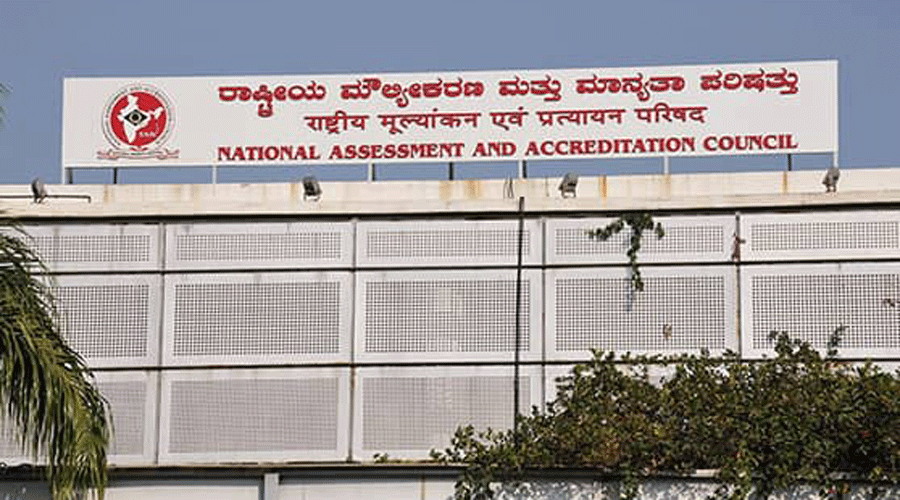India’s accreditation system now seeks to give admission-seeking students an idea of how good a general college or university is. Soon, it will have a provision to tell them how good a specific department or course at a particular campus is.
The National Accreditation and Assessment Council (NAAC) is set to dump its present system of accreditation, under which it awards a score and a corresponding grade to a college or university as a whole.
Instead, it will award “binary” accreditation, under which an institution will be merely declared accredited or unaccredited without being publicly awarded a score or grade.
However, the NAAC will be ready to accredit — with scores and grades — the college or university’s individual departments or courses, if the institution asks it to.
Both the institutional and departmental accreditations will be optional, as is the current system of graded institutional accreditation.
Bhushan Patwardhan, chairman of the NAAC’s executive committee, said the new system, which will reflect the variation in quality among programmes and departments within an institution, will be in keeping with global practices and the National Education Policy’s recommendations.
“The NAAC has decided to go for a binary accreditation system for institutions while allowing accreditation with grades separately for any department or any programme offered by the same institution,” Patwardhan told The Telegraph.
“This is expected to promote healthy competition within and outside the institution, providing an incentive to improve quality.”
He added: “Accreditation is a key quality indicator for an institution. Institutions with (good) grades are exempted from several regulatory provisions of the (higher education regulator) UGC.”
The NAAC accredits general and medical colleges and universities. Its counterpart for engineering and management education, the National Board of Accreditation, already accredits courses and not institutions.
However, despite nudges from the government, the pace of accreditation has been slow.
According to data shared by the department of higher education with a parliamentary standing committee, only 30 per cent of India’s nearly 1,000 universities and 9,000 among its 50,000 general colleges have been accredited.
M.M. Salunkhe, former vice-chancellor of the Rajasthan Central University, expressed doubts about the new accreditation policy.
“The NAAC’s progress in accrediting universities and colleges has been slow; how can it assess departments and programmes in addition to institutions?” he asked.
Salunkhe said the UGC now allows institutions with A+ accreditation from the NAAC to offer online courses. If the binary system is adopted, how can such relaxation be awarded to institutions, he asked.
Currently, the NAAC grants an A++ grade to institutions with scores of 3.51 to 4 out of 4, A+ for scores between 3.26 and 3.50 and A for scores between 3.01 and 3.25. It awards eight grades in all, including C, which means simple accreditation, for scores between 1.51 and 2 and D for scores below 1.51, which means unaccredited.
The Centre is preparing a bill to set up a Higher Education Commission of India as an apex regulator. The commission will have a National Accreditation Council to take care of accreditation.











